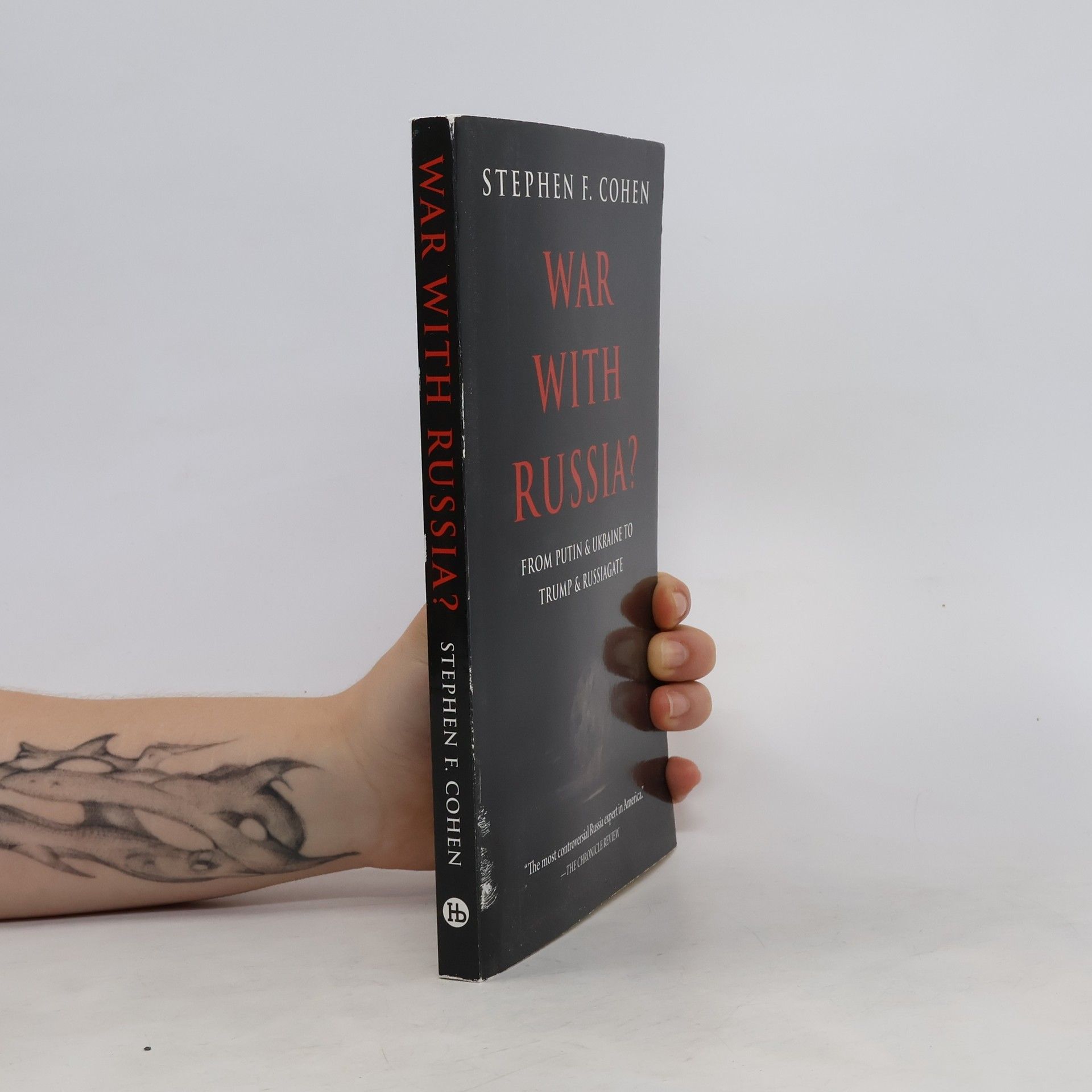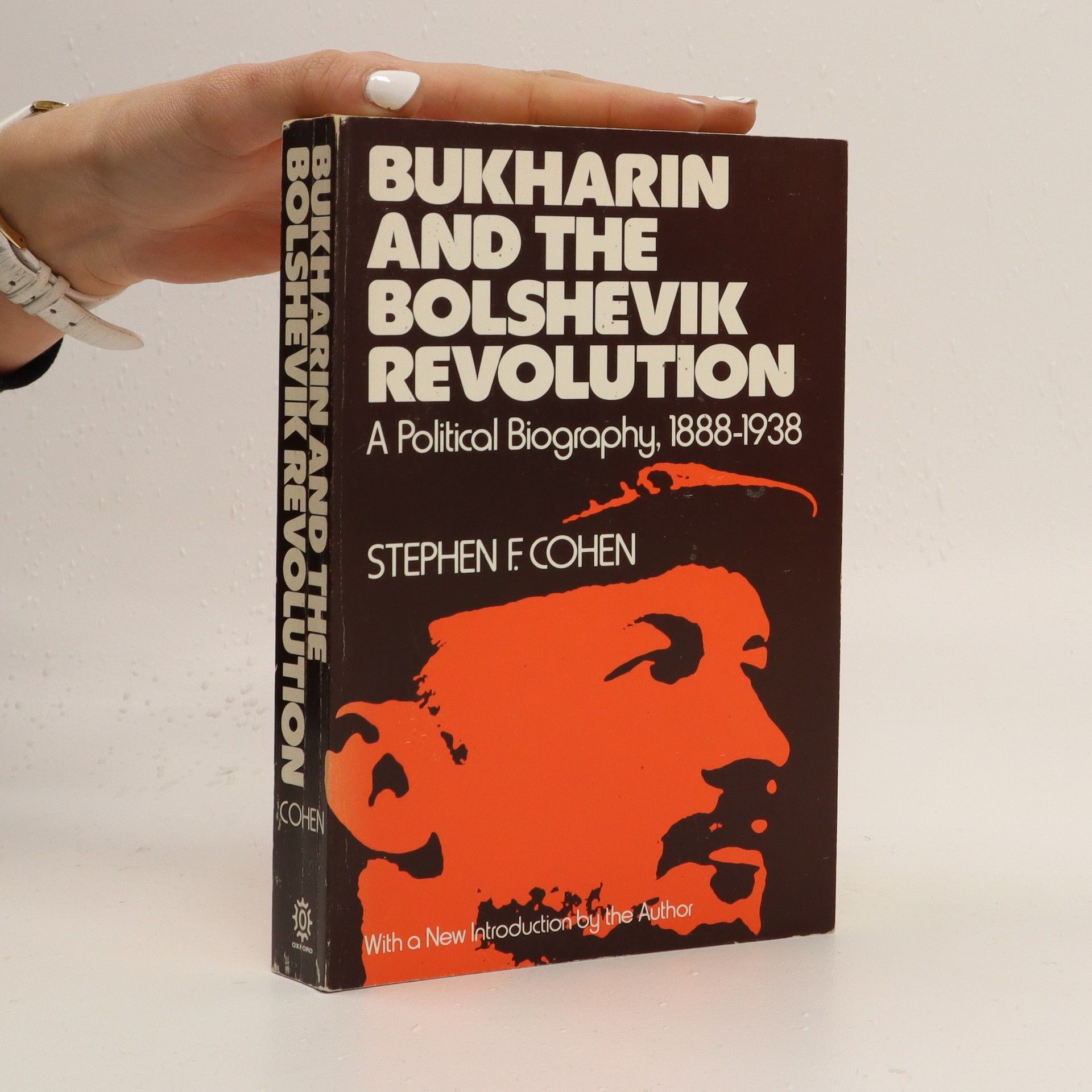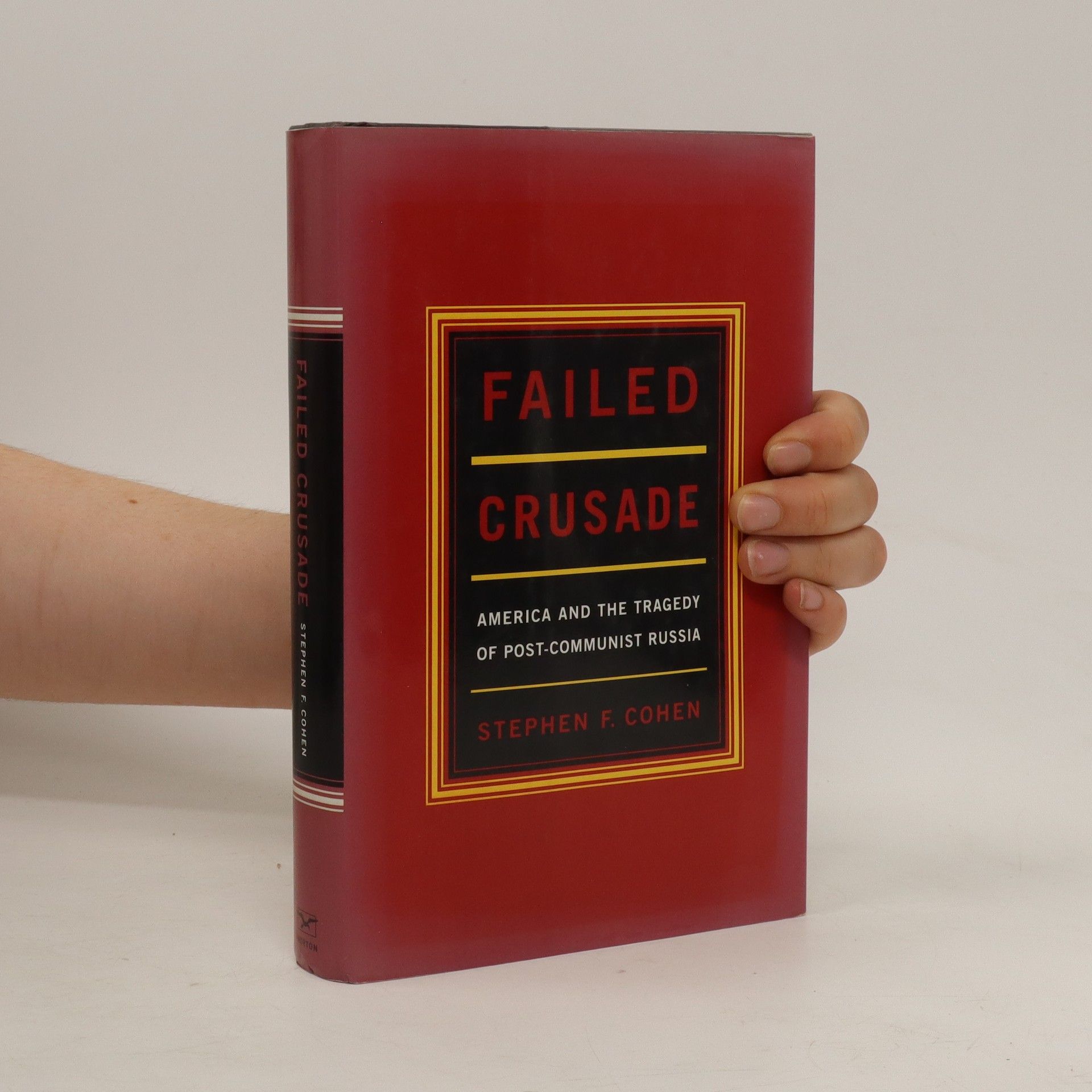The book delves into the complex dynamics of the East-West conflict that intensified following the 2014 Ukrainian crisis, examining its historical roots and implications for US-Russian relations. Stephen F. Cohen, a prominent scholar, provides a detailed analysis of the 'Inter Cold War' period, arguing that the current tensions could lead to a more perilous Cold War. His insights offer a critical perspective on the evolving relationship between the West and post-Soviet Russia, making it essential for those interested in contemporary geopolitical issues.
Stephen F. Cohen Ordine dei libri (cronologico)
Stephen F. Cohen è stato un eminente storico e scienziato politico americano il cui lavoro di una vita si è concentrato sullo studio della Russia e dell'Unione Sovietica. Con una profonda comprensione della storia e della politica sovietica, ha analizzato processi complessi dalla Rivoluzione Bolscevica all'era postcomunista. Cohen si è distinto per la sua capacità di addentrarsi nelle profondità dell'esperienza sovietica, esplorando percorsi alternativi che il paese avrebbe potuto intraprendere e valutando criticamente le percezioni americane della Russia. La sua vasta conoscenza e le sue frequenti permanenze in Russia gli hanno permesso di offrire una prospettiva unica sullo sviluppo e sul destino della nazione.






War with Russia
- 240pagine
- 9 ore di lettura
Cohen believes that America is in a new Cold War with Russia -- and it is even more dangerous than the one the world barely survived in the twentieth century. The two nuclear superpowers are again locked in political and military confrontations. Cohen provides a narrative of this dangerous new Cold War from its origins in the 1990s, the actual role of Vladimir Putin, and the 2014 Ukrainian crisis to Donald Trump's election and today's unprecedented Russiagate allegations. -- adapted from Amazon.com info
Arming without Aiming
- 223pagine
- 8 ore di lettura
India's approach of arming without strategic purpose remains viable, however, as it seeks great-power accommodation of its rise and does not want to appear threatening. What should we anticipate from this effort in the future, and what are the likely ramifications? This title answers those questions.
Soviet Fates and Lost Alternatives
- 342pagine
- 12 ore di lettura
About the Soviet Union from the days of Stalin's regime until the downfall of Communism.
Stephen Cohen updates his critically acclaimed book with a discerning view of significant recent events in the region, particularly the devastating earthquake in Kashmir and its after affects.
Reveals what really happened in Russia following the breakup of the Soviet Union, and the complicity of U.S. policy in a great human tragedy.
Bukharin and the Bolshevik revolution : a political biography 1888-1938
- 560pagine
- 20 ore di lettura
This classic biography carefully traces Bukharin's rise to and fall from power, focusing particularly on the development of his theories and programmatic ideas during the critical period between Lenin's death in 1924 and the ascendancy of Stalin in 1929.
